Ligue 1
World Cup roundup: Unpacking the drama as Brazil falls, Argentina escapes
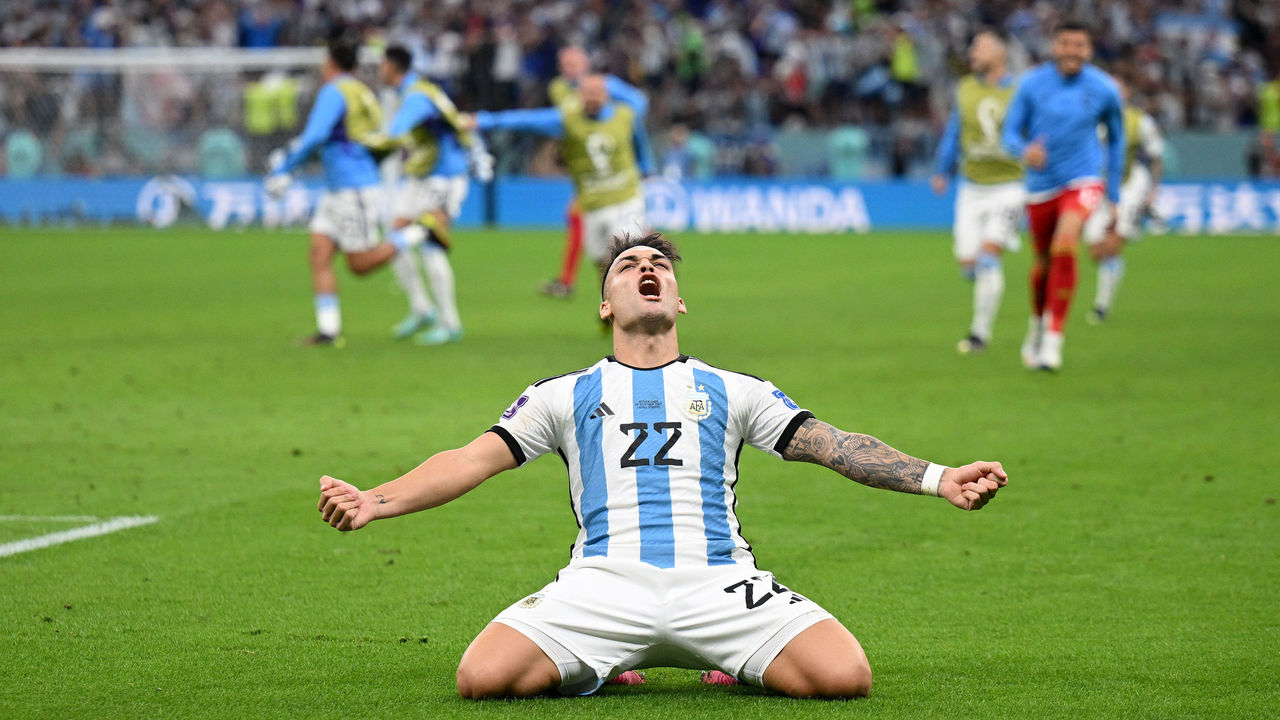
The 2022 World Cup is in full swing. At the end of every matchday, we’ll review the biggest talking points emanating from Qatar and break down all the action on the pitch. Below, we look back on Friday’s epic quarterfinal games.
Brazil, Neymar genuinely unlucky
Neymar’s defining moment was, ultimately, fleeting.
It’s moot now, but there’s an alternate universe where Neymar’s spectacular extra-time goal against Croatia – which tied Pele’s scoring record for Brazil’s men’s national team – goes down as the seminal sequence of his career. Imagine this: In scoring one of the great goals of the tournament, Neymar’s spark of inspiration helps lead Brazil to its record-extending sixth World Cup title and allows the 30-year-old to sign off from Selecao duty, garnering the admiration he desperately craves in his homeland.
Instead, his breathtaking tally is a footnote in Croatia’s improbable comeback victory. A goal of such quality – that showcased Neymar’s unique blend of quickness, agility, balance, composure, and skill – deserved better. Brazil, frankly, deserved better than a 4-2 shootout defeat.
That goal sort of sums up Neymar’s entire career: scores what would be a truly iconic one-of-one goal thanks to his unmatched mix of agility/technical ability/quickness/creativity … and then Croatia scores off a deflection, wins in PKs, and no one cares.
— Ryan O’Hanlon (@rwohan) December 9, 2022
Croatia, of course, deserves immense credit for again showcasing a stubborn unwillingness to lose. Zlatko Dalic’s team, gritty and experienced, is exceedingly difficult to beat. Brazil is the latest nation to learn that lesson in heartbreaking fashion. But, while it counts for absolutely nothing now, Brazil really should have won the tense affair at Education City Stadium.
Tite’s side peppered Dominik Livakovic’s goal, recording 11 shots on target over 120 minutes. Croatia had just one: Bruno Petkovic’s 117th-minute equalizer, a scuffed effort from the big striker that took a wicked deflection and spun into the net beyond Alisson’s outstretched arm.
Luck is often viewed in sporting parlance as a dirty word; it’s as if being lucky decreases the value of winning. But every team to ever win a title, at international or club level, needs luck at some point along the way. Brazil didn’t have it Friday.
The Selecao became the first team to lose a World Cup knockout match after taking a 1-0 lead in extra time. And it was in a game they had no business losing. And in what could have been a crowning moment of Neymar’s career. This one will be difficult to digest in Brazil for years to come.
Will Modric ever age?
Vedran Corluka and Mario Mandzukic were among those celebrating with Luka Modric when Croatia emerged victorious from the penalty shootout. Both retired from playing in 2021 after at least two years of their stiffening limbs offering diminishing on-pitch returns. Both have since appeared on Dalic’s coaching staff. And incredibly, both are several months younger than Modric.
The midfielder’s effervescence is well known. At 37, Modric is still as slippery and technically gifted as he was over a decade ago. He’s since drawn confidence and composure from a career awash with individual honors and club trophies. But his occasional omnipresence defies science. Despite his advanced years, he was everywhere against Brazil. He filled space between the lines, drew five fouls, and even chipped in with three tackles and two blocked shots.
Most touches ?? Luka Modric
Most passes ?? Luka Modric
Most important ?? Luka Modric#FIFAWorldCup | #Qatar2022 pic.twitter.com/Hhv143YmCz— Opta Analyst (@OptaAnalyst) December 9, 2022
Modric effortlessly evaded opponents throughout the 120 minutes. In the second period of extra time, he left Fred – who only came on minutes earlier – dumbfounded with a sublime dummy that won a corner. He was also involved in Petkovic’s dramatic equalizer as he rolled a physical challenge from former Real Madrid teammate Casemiro before the ball spilled to Nikola Vlasic through the middle. Two passes later, Croatia was level.
Being Croatian, Modric is used to working overtime. Eight of the national team’s last nine knockout matches needed an additional 30 minutes – the only exception being the 2018 World Cup final defeat to France. Nevertheless, a dominant question going into the semifinals will be the fitness of Modric and Croatia’s other elder statesmen after their considerable workload.
But if we’ve learned something from Croatia’s recent tournaments, it’s that it can never be written off. Judging from Modric’s inspirational display against Brazil, he’s still not ready to retire to a seat beside Dalic in the technical area.
Unforgettable day of World Cup theater
What. A. Day.
You didn’t have to be a fan of any of the four teams playing Friday to feel the unparalleled drama of the World Cup. With Brazil crashing out of Qatar at the hands of Croatia hours before its biggest rival, Argentina, narrowly avoided a similar fate against the Netherlands, Dec. 9 may end up as the best day of the 2022 World Cup.
There’d already been plenty of action in Qatar to keep fans entertained before the quarterfinals kicked off with a bang. Most of the excitement stemmed from the group stage, with Japan upsetting Spain en route to topping its group on the same day as South Korea’s surprise victory over Portugal. Morocco’s triumph over Spain in the round of 16 also ranks right up there as one of the most memorable games in Qatar.
But Friday was different.
Brazil and Argentina – two of the sport’s most successful competitors with seven World Cup titles between them – were on the ropes just hours apart in their respective quarterfinal matchups. Both seemed destined for a semifinal berth before disaster struck under eerily similar circumstances. Both battled stubborn opponents who refused to go down without a fight. But only one survived.
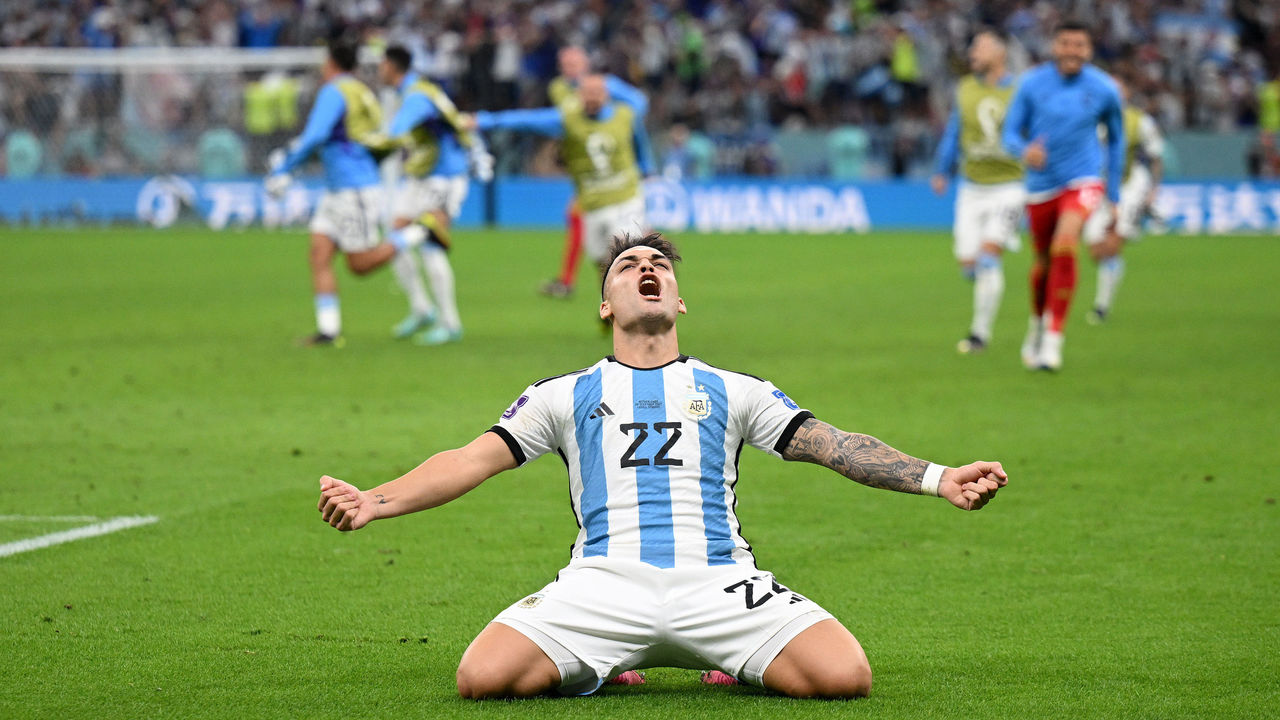
In the early contest, it was Brazil against a battle-tested Croatia side fresh off of finishing second in 2018. The five-time winner appeared to seal a place in the semis after Neymar’s historic go-ahead goal in the first half of extra time. But Croatia came roaring back to score an equalizer before Livakovic denied the Selecao early in the shootout. Marquinhos’ miss on Brazil’s fourth attempt ultimately doomed Tite’s side and ended any hope of a mouthwatering semifinal against Argentina.
But Argentina’s spot in the semis was anything but guaranteed against a resilient Netherlands outfit. La Albiceleste supporters were already buzzing after learning of Brazil’s shock elimination. The stadium was rocking after kickoff when Nahuel Molina and Lionel Messi gave Argentina a 2-0 lead. But the Dutch silenced the boisterous South American fans with a dramatic equalizer, a 101st-minute equalizer.
In the shootout, after seemingly learning from Brazil’s mistake when Neymar was picked to shoot last, Messi stepped up to take the first penalty, delivering a composed strike to set the tone. Argentina’s path to victory in the shootout wasn’t straightforward from there, but the two-time World Cup winner ultimately prevailed to play another day. A date with Croatia awaits.
Quick free-kicks
Why didn’t Neymar take a penalty?
As a shattered Neymar looked on in despair, tears flooding from his eyes, it was impossible not to question why, as Brazil’s best penalty taker, he didn’t step up to the spot in the shootout. It brought a familiar debate back to the forefront: What is the ideal way to allocate your penalties in a shootout? “The fifth (shot) is the decisive one, there is more pressure, and players more mentally prepared are ones to take this last penalty kick,” Brazil manager Tite said after the match when asked why Neymar was saved for the last penalty, which, as it turned out, he never got the chance to take. Having Neymar go first is the sensible decision. If not that, then perhaps fourth? All too often, the fifth penalty never comes to fruition. The shootout is over before it can get to that point, as was the case Friday. There’s something undeniably grand and satisfying about having your superstar convert the final, winning kick. But the risk is too great. This was just another example. The dichotomy was hammered home when, later in the day, Messi stepped up to take – and converted – Argentina’s first shootout attempt.
Livakovic, Juranovic in the shop window
Only three men have saved four shootout penalties in a single World Cup tournament:
?? 4 – Sergio Goycochea (1990)
?? 4 – Danijel Subaši? (2018)
?? 4 – Dominik Livakovi? (2022) ?The hero once again.#FIFAWorldCup pic.twitter.com/0ep7Zc191p
— Squawka (@Squawka) December 9, 2022
Croatia’s goalkeeping choices were supposed to be an Achilles heel at this tournament, but the reputation of Dinamo Zagreb’s Livakovic has skyrocketed in Qatar. Following his three penalty shootout saves against Japan, the 27-year-old produced more heroics with 11 stops – seven of which were shot inside his own area – and an extra save in spot-kicks against Brazil. However, Livakovic might not be the most sought-after player in Dalic’s ensemble. Josip Juranovic, expected to be available for transfer after Celtic signed fellow defender Alistair Johnston last week, was arguably Croatia’s second-best player (after Modric) at Education City Stadium. The right-back halted Vinicius Junior on numerous occasions and ambitiously ran at Danilo or through the middle whenever he had the ball. Every time he surged forward, it felt like his asking price raised by a few million.
That’s more than enough, Mateu
Regular La Liga viewers all likely nodded in unison with every yellow card Mateu Lahoz handed out at Lusail Stadium. This was no surprise to them. They probably had sore necks by the end of it all. The eccentric Spanish referee, infamous for making himself a central figure in any match he oversees, showed 18 total cards in Argentina’s chaotic victory over the Netherlands. Of course, some of that wasn’t his fault. Leandro Paredes smashing the ball into the Dutch bench from point-blank range, which started a brouhaha, was out of Lahoz’s control. But the Spaniard too often brings commotion upon himself within matches with questionable decisions and a lack of consistency. Clear bookable offenses slide right on by, while less serious infractions result in Lahoz reaching for his pocket. It’s confounding. Messi and Emiliano Martinez slammed the referee’s performance after Friday’s match, with the latter calling him “useless.” With Spain out of the tournament, there’s a possibility Lahoz, who took charge of the 2021 Champions League final, could be the man in the middle for the World Cup final. That would be to the detriment of the tournament.
Launch it to the big man
Louis van Gaal and the Dutch purists have been at odds for much of his current tenure. His style of football – which ditched the nation’s beloved 4-3-3 system – was dubbed too defensive, too reactionary, and, crucially, not aesthetically pleasing. Van Gaal, never one to cower in the face of critics, refuted claims that his team was “boring” and pointed to the results as many coaches do. The Netherlands, until Friday, was winning. Against that backdrop, there would have been something delicious – and hilarious – about Wout Weghorst emerging as the hero if his unlikely late brace in normal time had culminated in a Dutch victory. The gigantic forward is the antithesis of the silky football of Johan Cruyff, Marco van Basten, and Arjen Robben. But he was damn effective against Argentina, scoring twice with his first 10 touches after coming off the bench, including the latest second-half goal in a World Cup knockout game in recorded history (101st minute). Launching the ball forward to a hulking center-forward is dismissed by many as antiquated, but, as Van Gaal and the Netherlands proved, it can work. That tactic very nearly saved the Netherlands.
Stat of the day
Messi’s assist for Molina, in which he created a passing lane out of thin air by nutmegging Nathan Ake, was out of this world.
5 – Lionel Messi has assisted five goals in the World Cup knockout stages – since Opta have World Cup assists (from 1966), this is the most on record in the knockout rounds of the finals, surpassing Pelé’s four. Goat. pic.twitter.com/ScHbh5oj1b
— OptaJoe (@OptaJoe) December 9, 2022
Tweet of the day
“And then to penalties. Which they always win.”
Football is a simple game. Twenty-two men chase a ball for 90 minutes and at the end, the Croatians take it to extra time.
— Grace Robertson ????? (@GraceOnFootball) December 9, 2022
You may like
Ligue 1
Biggest winners and losers from the January transfer window
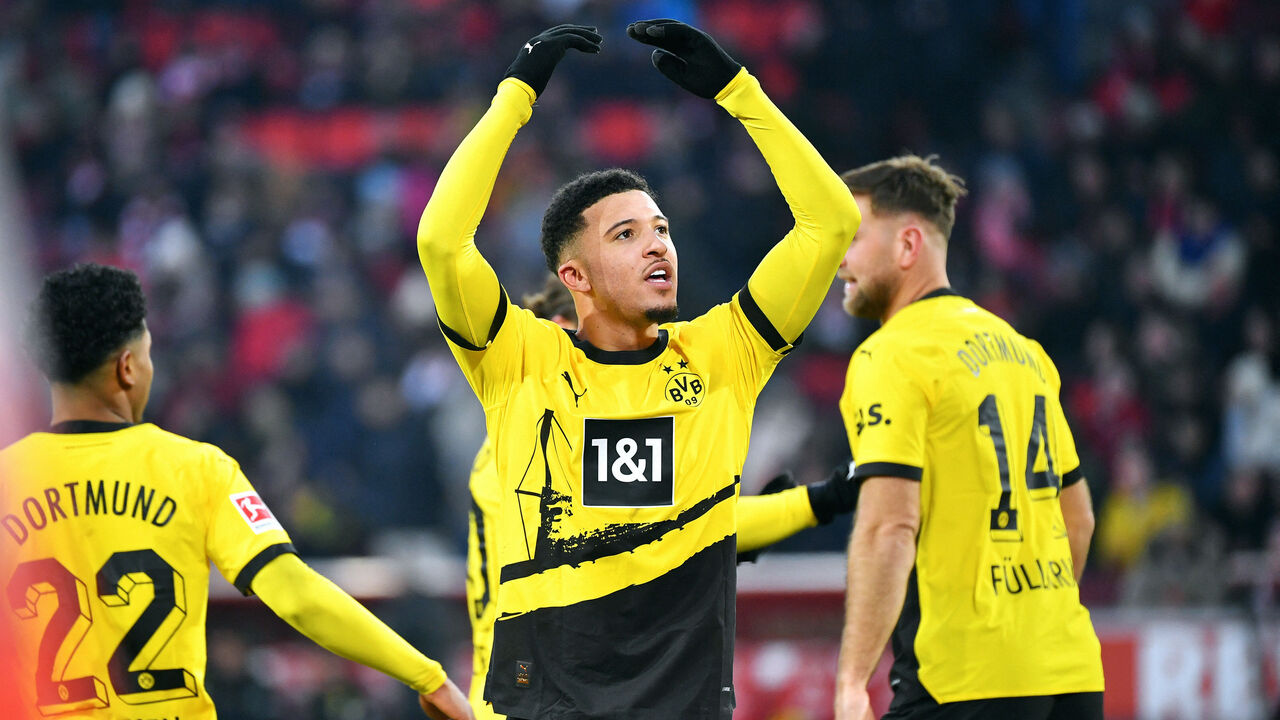
Find the biggest stories from across the soccer world by visiting our Top Soccer News section and subscribing to push notifications.
Another transfer window is officially in the books. Below, theScore picks out the biggest winners and losers from a muted January signing period.
Winners: Jadon Sancho and Kalvin Phillips
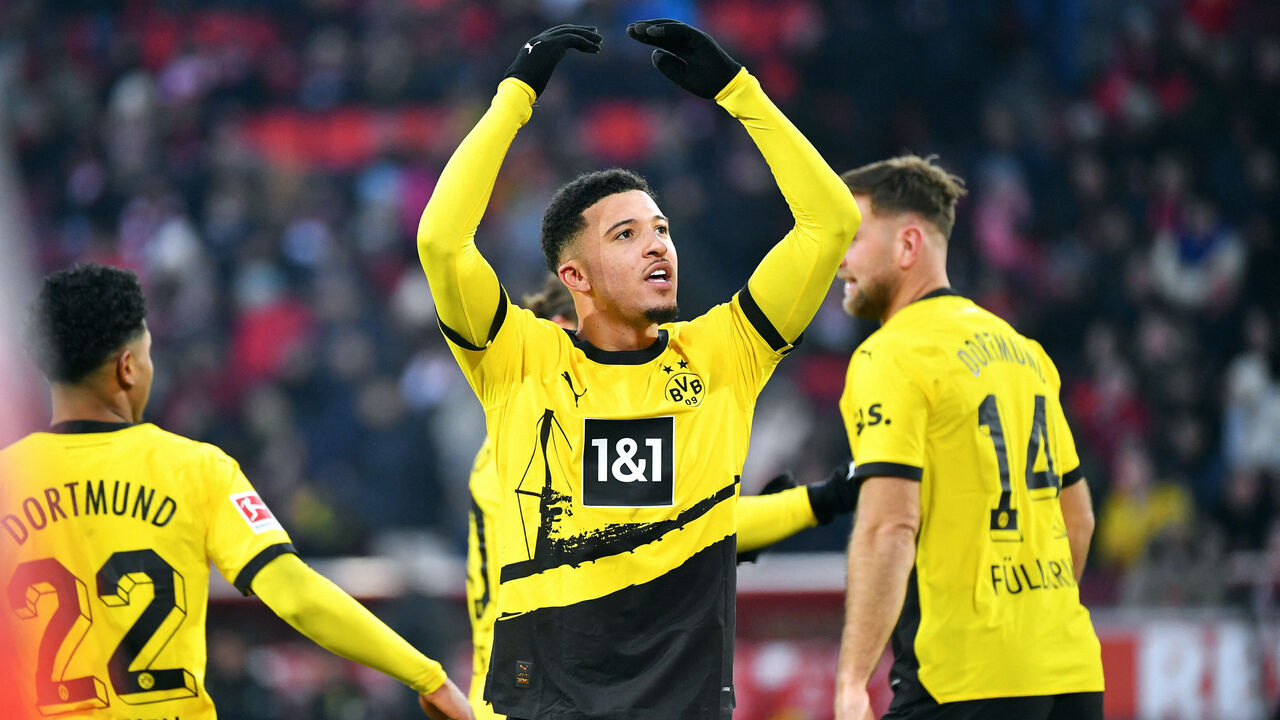
Nobody needed a move more desperately than these two.
An increasingly bitter – and alarmingly public – feud with headstrong manager Erik ten Hag turned Sancho’s Manchester United spell into a nightmare. The English winger, who joined the club for €85 million, had been frozen out of the squad since August before sealing a merciful return to Borussia Dortmund on loan. The beaming smile that accompanied his official unveiling by Dortmund said it all. Sancho, for the first time in months, was happy. He was “home,” surrounded by familiar faces and people who have seen him at his very best, when he was one of the most electrifying young players in world football. He’s made an immediate impact at Dortmund, shaking off the rust after nearly four months on the shelf to instantly become a key player for Edin Terzic.
His compatriot, and fellow Euro 2024 hopeful, was in a similar boat. Phillips’ 2022 transfer to Manchester City was, in no uncertain terms, a disaster. He started just two Premier League matches in 18 months under Pep Guardiola, and new midfield arrivals made any prospect of increased playing time highly unlikely. England manager Gareth Southgate still believes in his abilities, but continuing to rot on the City bench was obviously detrimental to his hopes of playing any role at this summer’s tournament. Along came West Ham United to rescue him. David Moyes will give the 28-year-old every opportunity to play and showcase, for Southgate and any other interested parties, that he’s still capable of performing at a high level.
Loser: Jordan Henderson
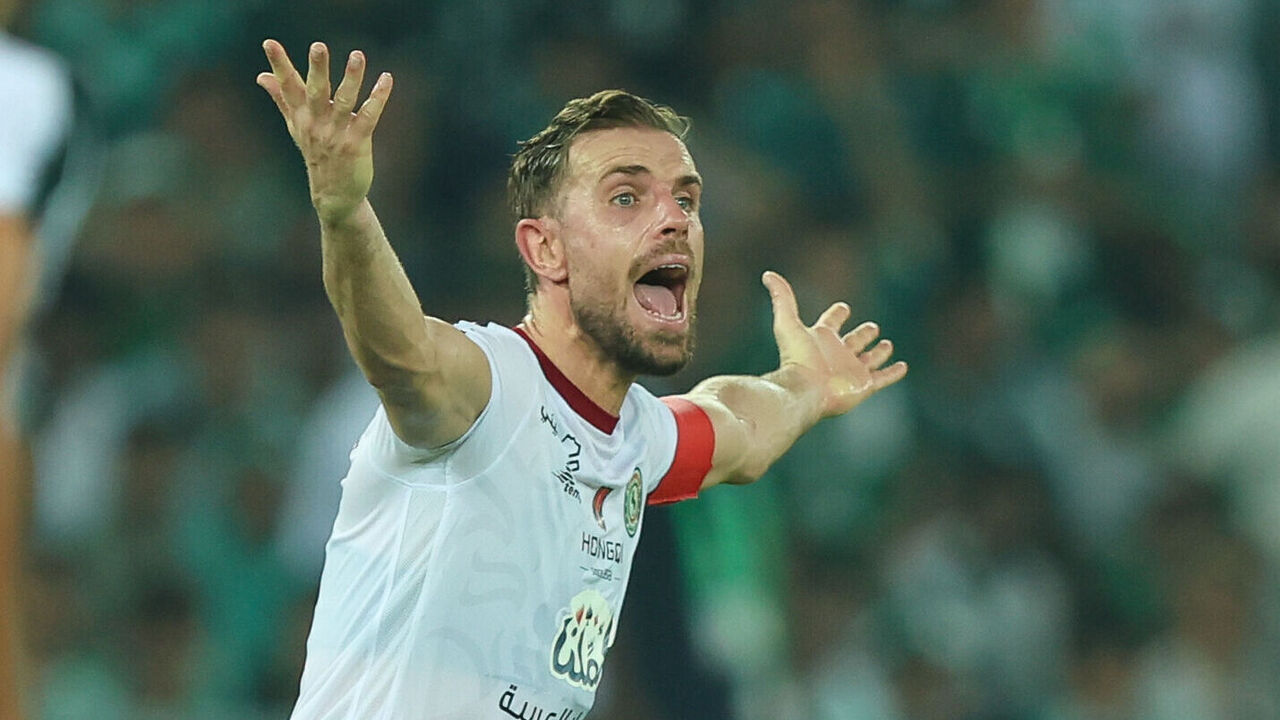
Tail tucked firmly between his legs, Henderson is back in Europe.
By any possible metric, his surprising decision to sign for Al-Ettifaq in the summer backfired spectacularly. Just six months, and a measly 17 appearances, after claiming he was in the Middle East “to stay” and help the Saudi Pro League grow, he hightailed it to Ajax. His family apparently had reservations about his move to the Middle East to begin with, but he charged forward anyway, and, after being one of the sport’s most prominent supporters of the LGBTQ+ community during his time at Liverpool, he torpedoed the goodwill he had built.
And for what?
The midfielder took a significant pay cut to terminate his Al-Ettifaq contract and join the struggling Dutch giants. Because he reportedly backloaded a large amount of his salary, he didn’t even cash in like some of his peers, which always seemed to be the sole motivation in the first place.
Winners: Atletico Madrid
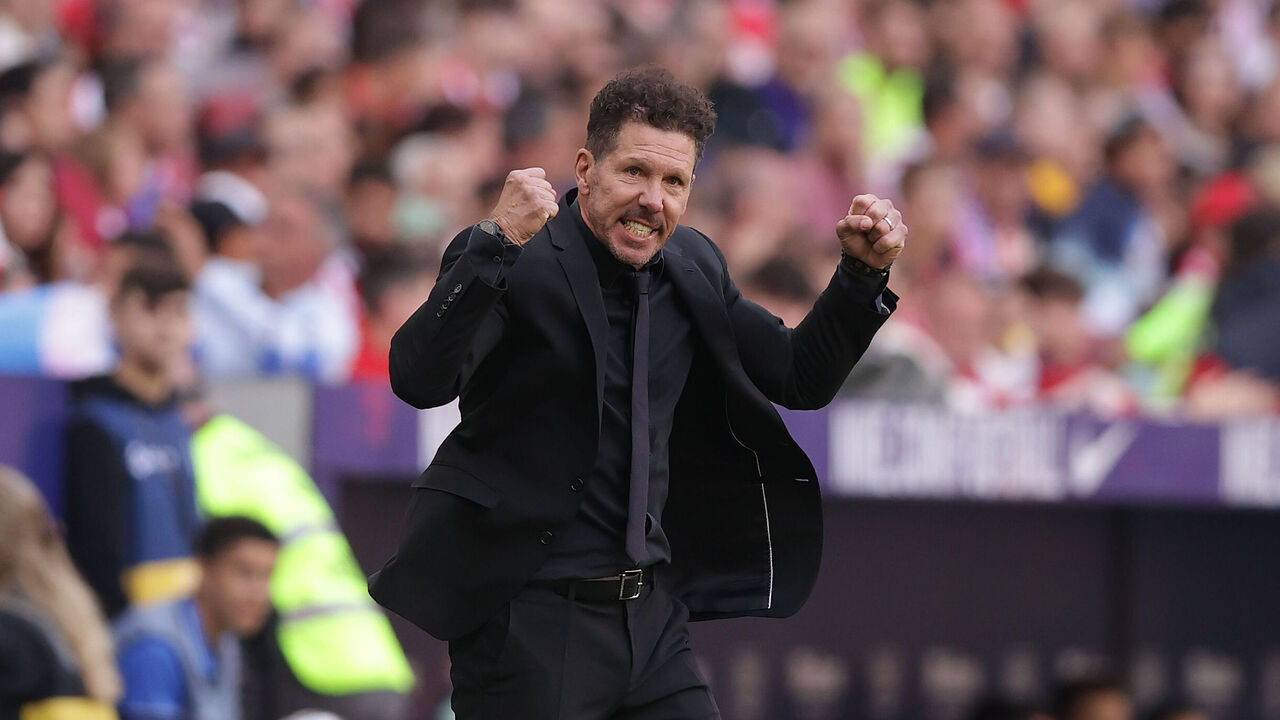
Half of Europe was tracking Arthur Vermeeren during the January window, with some of the continent’s top sides trying to formulate ways to sign the ascendant 18-year-old either immediately or, more likely, in the summer. In the end, Atletico Madrid beat them all to the punch, landing the prodigious midfielder for what looks like a very modest fee; Vermeeren will reportedly cost €18 million up front, with Royal Antwerp potentially collecting an additional €5 million in bonuses.
Diego Simeone has been craving a deep-lying player who can help rejuvenate his midfield, and the blossoming Belgian, already with extensive first-team experience at Antwerp despite his youth, fits that bill. Vermeeren was handed the start at the first opportunity after joining Atletico, showing that Simeone has no qualms about throwing him into the fire right away. The manager, and the club, think he’s ready right now. While other young players have faltered in the past at Atletico, their newest gem looks set to thrive.
Losers: Napoli
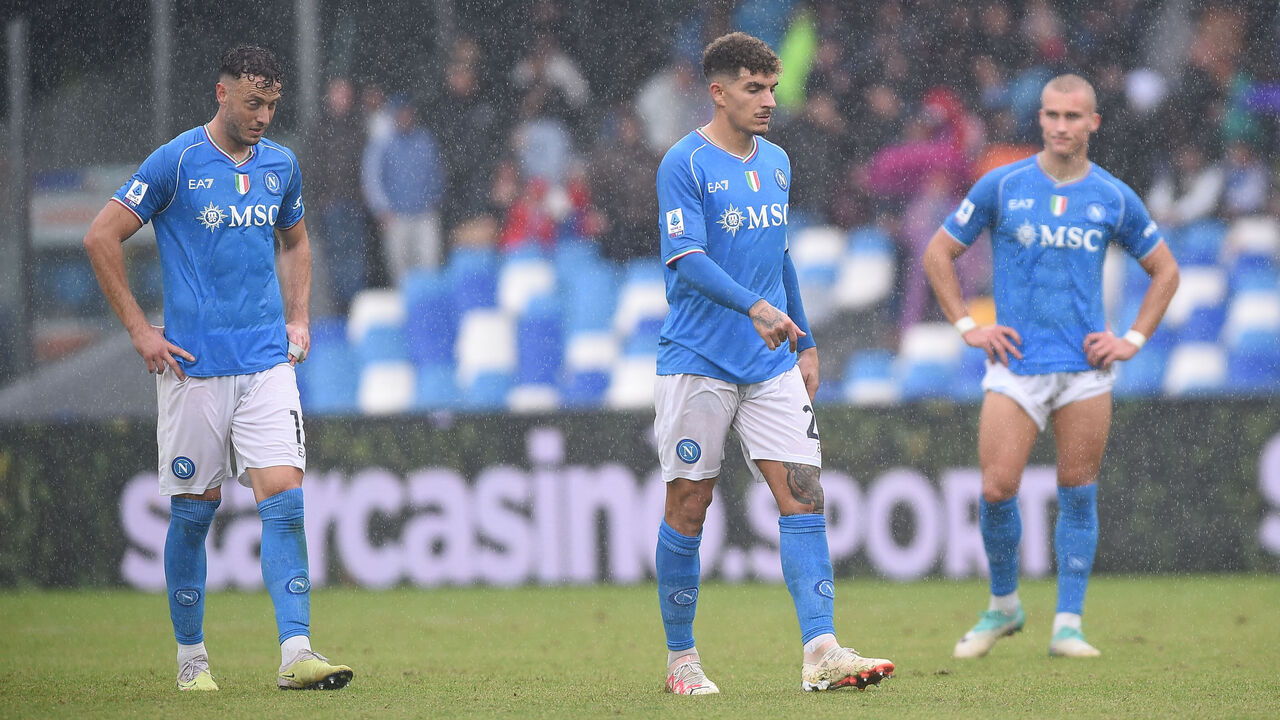
When navigated properly, the January transfer window can be a turning point in a club’s season. With some nimble moves, teams can either put themselves over the top and ignite a push for silverware or, if they’re struggling, get a timely boost and get back on track.
That’s precisely what Napoli needed. They didn’t get it.
The rudderless Serie A champions, 22 points off the summit this season, failed to land top target Lazar Samardzic, and a potential deal for solid defender Nehuen Perez never materialized. Cyril Ngonge is an intriguing addition up front, but their other signings all come with questions: Leander Dendoncker and Pasquale Mazzocchi, who was sent off on his debut, are little more than depth pieces that don’t move the needle; Hamed Traore still has potential, but he’s recovering from malaria and may not play much of a role at all this season. Worst of all, their best player, Victor Osimhen, appeared to confirm that he’s already planning his eventual exit. Not ideal.
Winners: Benfica
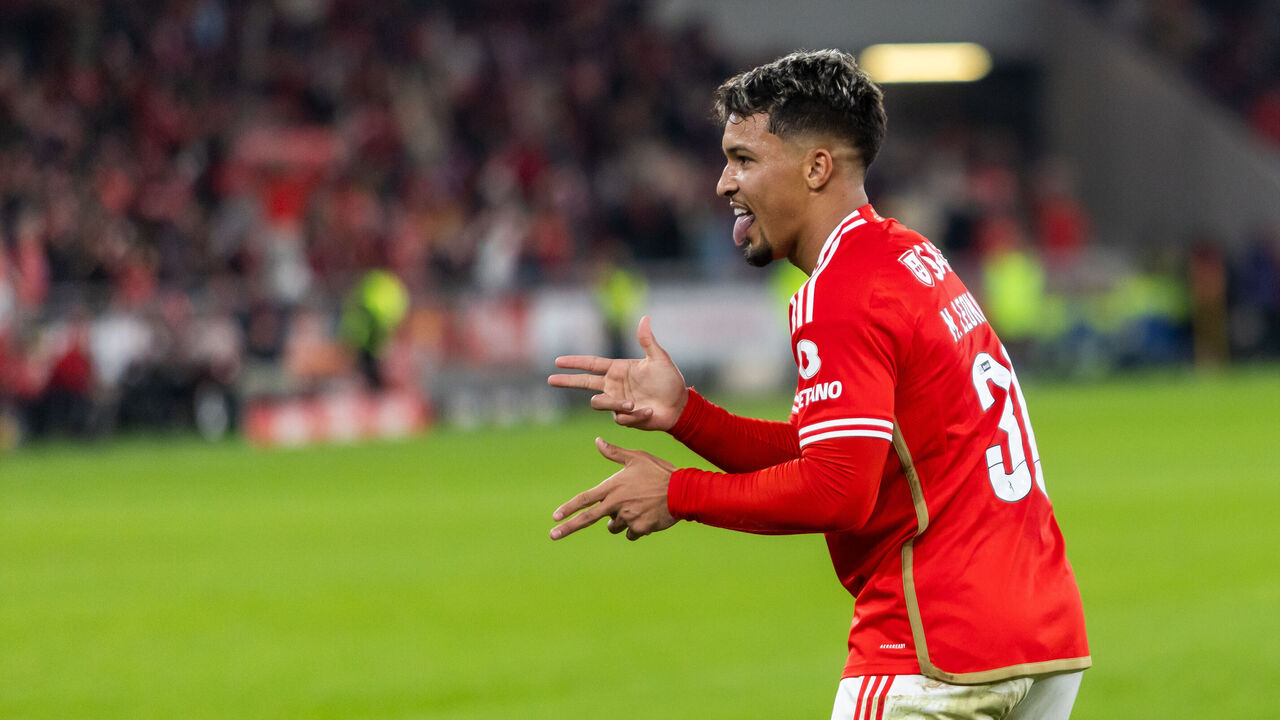
If it ain’t broke, don’t fix it.
Benfica have made a very profitable habit out of scouring the South American market for young talent, signing some of the continent’s most promising players for modest sums, and then flipping them for extravagant fees to clubs across Europe. See: Fernandez, Enzo. Sticking with a similar formula, the Portuguese outfit landed Brazilian striker Marcos Leonardo from Santos and Argentinean winger Benjamin Rollheiser from Estudiantes de La Plata in January. They paid under €30 million combined for the two; the latter arrived on an initial loan that will become permanent in the summer.
Don’t be surprised if one, or both, are on the move to one of Europe’s leading sides in the very near future. Leonardo, in particular, will be in high demand if his scoring exploits from Brazil translate to Europe, with Benfica setting his release clause at €150 million in anticipation of the phone ringing. Perhaps striker-needy Chelsea will come calling again in the summer?
The South American pipeline, in general, came to the fore in January – Paris Saint-Germain spent a combined €40 million to acquire Lucas Beraldo and Gabriel Moscardo from Sao Paulo and Corinthians, respectively – but few teams operate as skillfully as Benfica in that area.
Loser: Karim Benzema
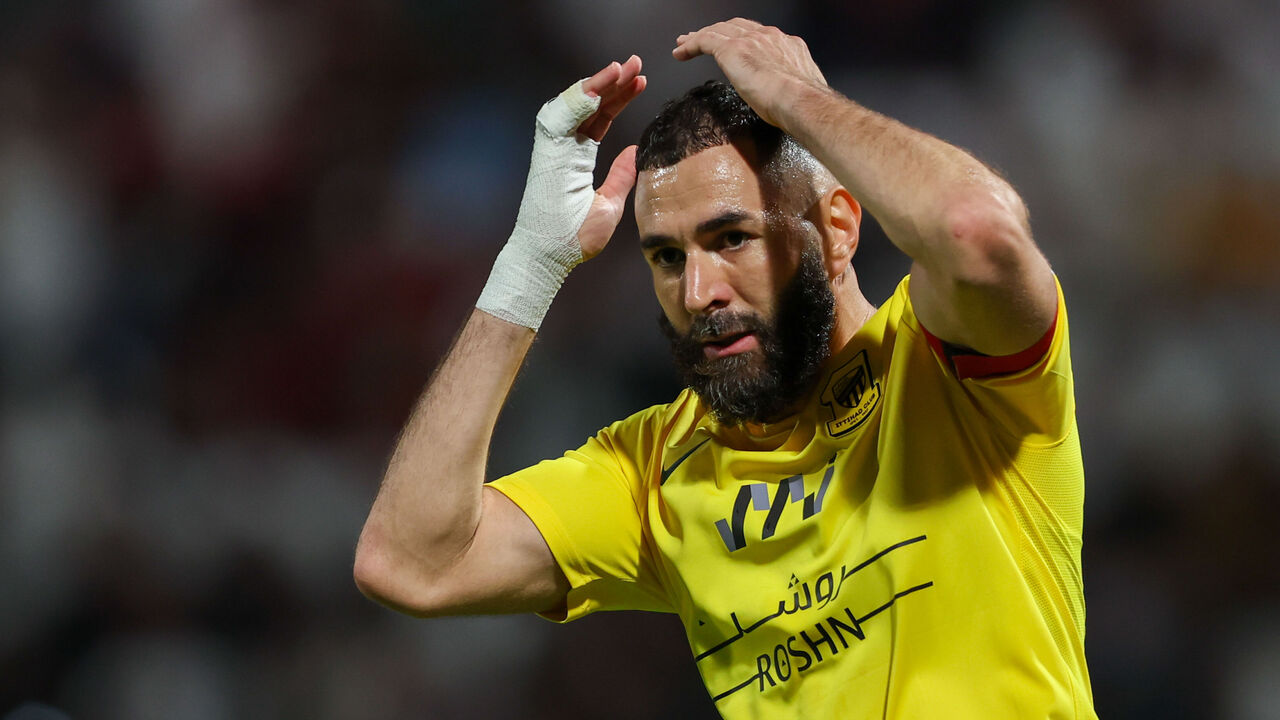
In what’s quickly becoming a familiar refrain among players who moved to Saudi Arabia in search of bottomless riches, Benzema made his displeasure with his situation at Al-Ittihad very clear. The former Ballon d’Or winner, the Saudi Pro League’s prized summer signing, reportedly went AWOL and returned to Jeddah from the league’s midseason break 17 days late, apparently in the hopes of engineering a transfer back to Europe.
There were rumblings of interest from Lyon, his former team, and Chelsea. Neither amounted to much at all. Al-Ittihad remained adamant that the unsettled striker wouldn’t be sold, which was apparently the impetus for a tense meeting with manager Marcelo Gallardo. And, after all that, here we are. Benzema, unlike Henderson, didn’t get his move. Al-Ittihad retained their biggest star, but his mood and outlook are unlikely to change overnight, if at all. The player is unhappy, the club has a fractured relationship to try and mend, and the league, after wooing so many high-profile names just six months ago, has to try and convince onlookers that, actually, everything is fine and the project remains on course. There are no winners here.
Ligue 1
Latest news and rumors from the January transfer window
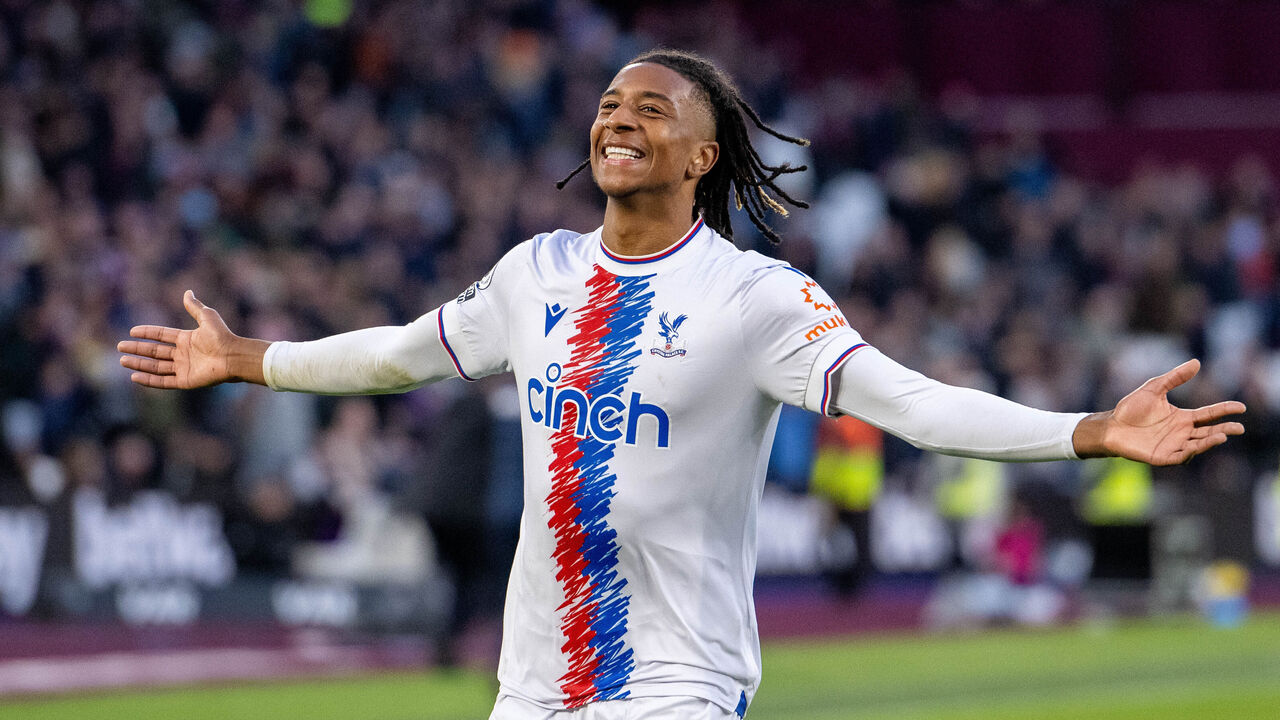
Find the biggest stories from across the soccer world by visiting our Top Soccer News section and subscribing to push notifications.
With the January transfer period now open, the rumor mill is in overdrive throughout world football. theScore will keep you up to date on all the latest transfer buzz until the end of the window.
Jan. 1
Brentford’s big valuation: Ivan Toney is being tracked by several clubs in January, including Arsenal and Chelsea, but Brentford will only listen to offers for the striker worth at least £80 million. (Ben Jacobs)
Cash to burn: With Jim Ratcliffe and INEOS set to provide a £235-million cash injection after their recent investment in the club, Manchester United can be active in January without running afoul of Financial Fair Play. (The Times)
Varane allowed to depart: Manchester United won’t trigger an option to extend Raphael Varane’s expiring contract by an additional year, meaning he’s free to sign a pre-contract agreement with other teams this month. (Daily Mail)
Reds plan for the future: Liverpool have deployed scouts to watch Michael Olise to assess whether the Crystal Palace winger can be a suitable long-term replacement for star forward Mohamed Salah. (Football Insider)
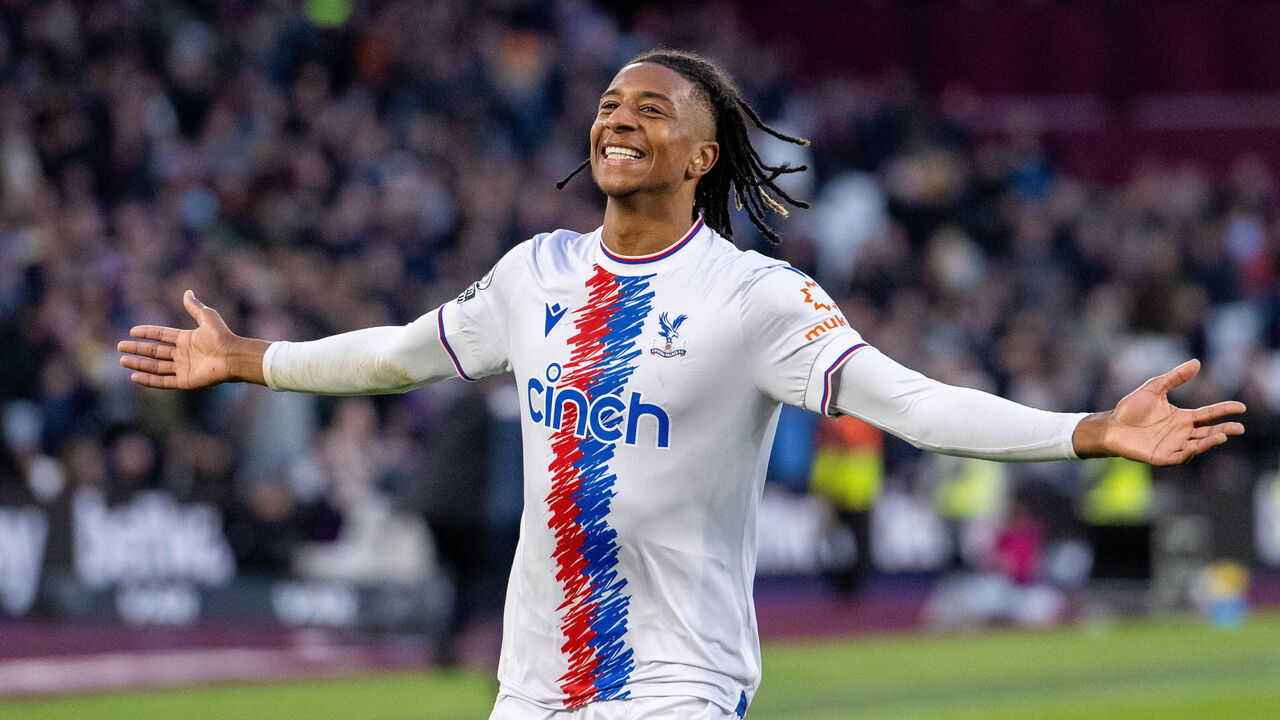
Carvalho not staying for long: After Liverpool recalled him from his disappointing loan spell at RB Leipzig, Fabio Carvalho could be set for a temporary move to Championship leaders Leicester City. (Sky Sports)
Monaco moving for Kehrer: Despite competition from AC Milan, Roma, and Atalanta, AS Monaco are leading the race to sign Thilo Kehrer. Negotiations with West Ham are advancing to the final stages. (Fabrizio Romano)
Frankfurt staying busy: After confirming Donny van de Beek’s arrival on Monday, Eintracht Frankfurt continue to shop in England. The German outfit is close to adding towering Wolves striker Sasa Kalajdzic on loan. (BILD)
Looking at Lookman: Juventus, Nice, and multiple Premier League teams are considering making a move for Ademola Lookman, who’s developed into one of Serie A’s most exciting attackers at Atalanta. (Daily Mail)
Dec. 31
Spurs to bolster backline: Hit hard by defensive injuries, Tottenham are working to sign Radu Dragusin. Genoa want €30 million for the Romanian center-back, who’s agreed to personal terms with Spurs. (Fabrizio Romano)
Benzema not going anywhere: Karim Benzema is struggling in Saudi Arabia and getting plenty of flak from Al-Ittihad supporters, but the club has no intention of letting its marquee player leave in January. (Foot Mercato)
Allegri not sold on Phillips: Juventus boss Max Allegri isn’t convinced that Kalvin Phillips is a good fit for his tactical scheme and could veto a potential move for the seldom-used Manchester City midfielder. (Calciomercato)
Reds recall Carvalho: Liverpool cut Fabio Carvalho’s RB Leipzig loan short because they weren’t satisfied with his playing time – he played just 165 Bundesliga minutes for Leipzig, making only one start. (Fabrizio Romano)
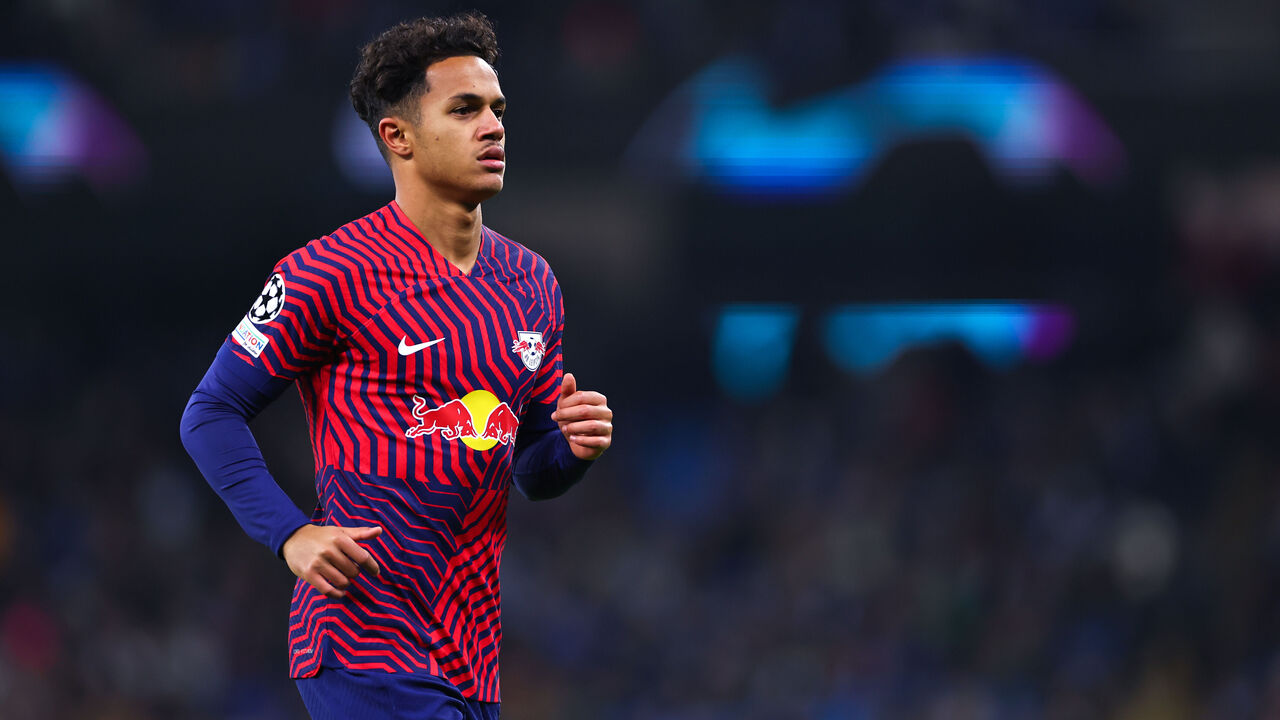
Navas wanted Madrid return: When Thibaut Courtois went down with a torn ACL in the summer, Keylor Navas, still at PSG, contacted his former team about returning. Real Madrid weren’t interested, though. (Marca)
Dybala available for peanuts: A €13-million release clause in Paulo Dybala’s Roma contract will kick in on Jan. 1 for non-Italian clubs. Roma won’t be able to reject the offer if a foreign team activates the clause. (Gazzetta dello Sport)
Napoli need a boost: Desperately trying to spark their dismal season into life, Napoli are negotiating with Udinese to sign Lazar Samardzic. The two sides are closing in on an agreement for a January deal. (Fabrizio Romano)
BVB eyeing Maatsen: With playing time limited at Chelsea, Ian Maatsen is considering his options in January. Borussia Dortmund, who could ship Ramy Bensebaini out, are in the market for some help at left-back. (BILD)
ETH wants Evans to stay: Very little has gone right for Manchester United this season, but manager Erik ten Hag has been so pleased with Jonny Evans’ performances that he wants the veteran to extend his contract. (Daily Star)
Dec. 30
Mbappe saga continues: Real Madrid will make another attempt to sign impending free agent Kylian Mbappe, and plan to offer him £23 million per season, plus a monstrous £110-million signing bonus. (Marca)
Arsenal seeking striker: Looking to boost their title push, Arsenal have identified a pair of Nigerian Victors – Osimhen and Boniface – as alternatives if they can’t land Brentford’s Ivan Toney. (Daily Express)
Guirassy’s modest fee: Red-hot Stuttgart striker Serhou Guirassy, who has 17 Bundesliga goals this season, is available for just €17.5 million in January. Manchester United could trigger his release clause. (Football Insider)
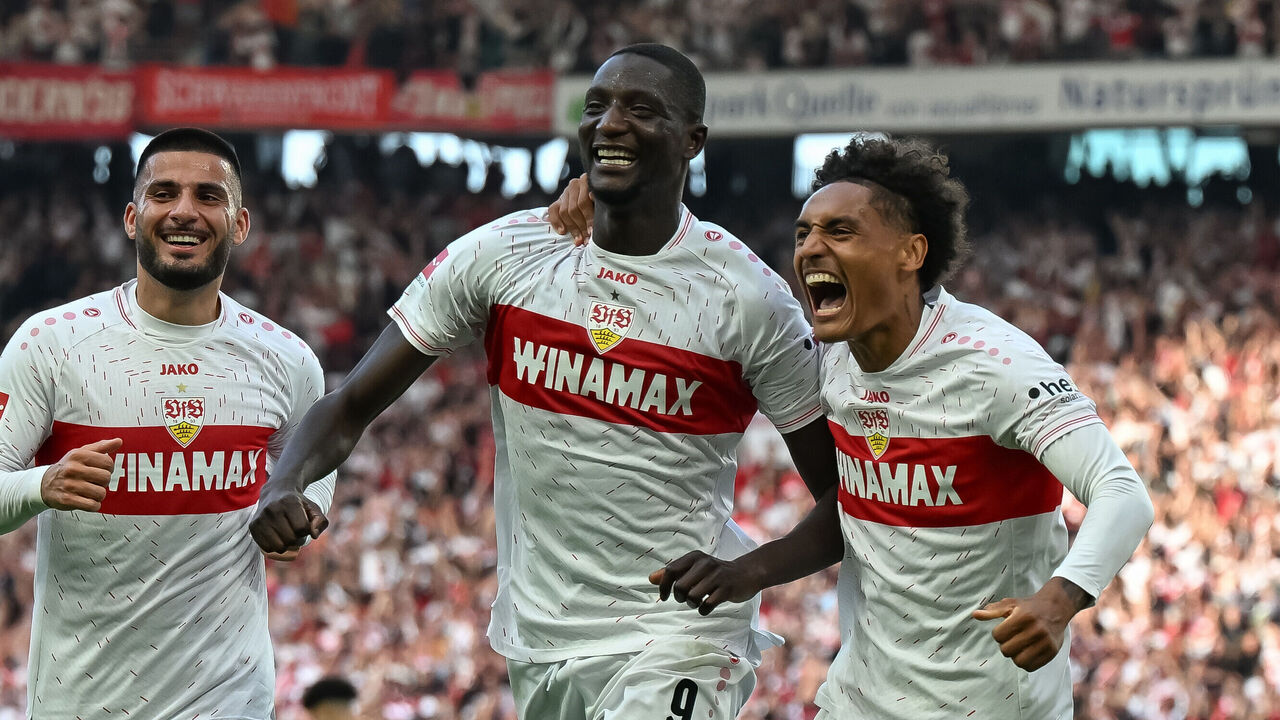
Solanke drawing interest: Tottenham are among the clubs considering a move for Bournemouth’s Dominic Solanke, who is tied for second in Premier League scoring this season with 12 goals. (The Independent)
Juve, Arsenal talk exchange: Juventus want to sign Arsenal youngster Charlie Patino, who’s on loan at Swansea City. The Bianconeri are willing to offer striker Moise Keane to the Gunners to facilitate the deal. (Tuttosport)
Arsenal willing to listen: Arsenal bench boss Mikel Arteta is open to the departures of Eddie Nketiah, Emile Smith Rowe, and Aaron Ramsdale in January if hefty offers arrive for any of the three Englishmen. (Mirror)
Bad news for Silva’s suitors: Benfica manager Roger Schmidt has told the likes of Liverpool and Manchester United that Antonio Silva, the in-demand 20-year-old center-back, is not for sale in January. (90min)
Dec. 29
De Ligt in shop window: Arsenal are considering a move for Bayern Munich’s Matthijs de Ligt, but with the German club already depleted in defense, any transfer would likely have to wait until the summer. (The Athletic)
Firmino ready to leave: He’s only been there for six months, but Roberto Firmino’s time at Al-Ahli could already be coming to an end. A switch to another Saudi club is possible, while Turkey is also an option. (talkSPORT)
The plan for Echeverri: Manchester City are on the verge of signing 17-year-old Argentine Claudio Echeverri from River Plate. He’ll spend time at City’s sister club Girona before joining Pep Guardiola’s squad. (Mundo Deportivo)
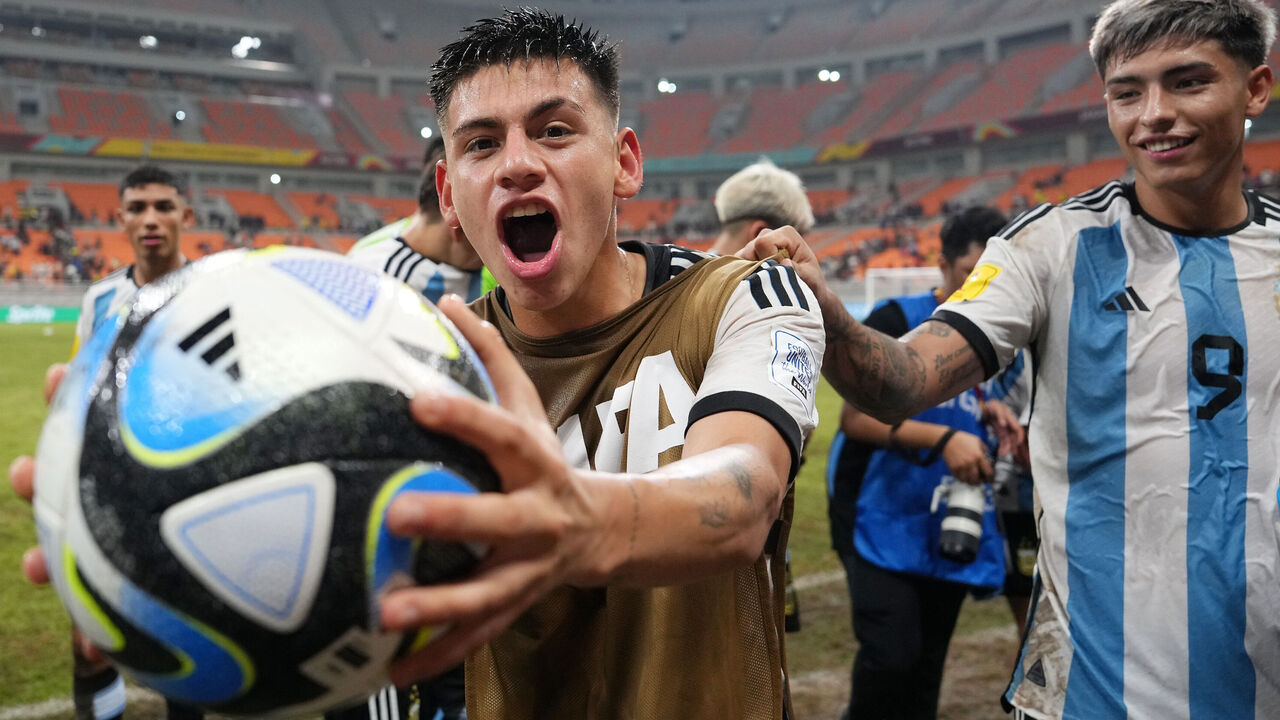
Someone rescue Ekitike: Crystal Palace could offer Paris Saint-Germain striker Hugo Ekitike a much-needed avenue to playing time. The 21-year-old has only been handed nine Ligue 1 minutes this season. (Evening Standard)
Gerrard demands signings: Winless since October, Steven Gerrard is under increasing pressure at Al-Ettifaq. The under-fire manager wants his club to be active and improve the quality of the squad in January. (Daily Mail)
Chelsea’s newest youngster: Chelsea have struck a deal to sign 17-year-old midfielder Pape Daouda Diong from Senegalese side AF Darou Salam. It will become official when he turns 18 next summer. (Fabrizio Romano)
Dec. 28
Griezmann intrigued by MLS: Antoine Griezmann, enjoying another prolific season with Atletico Madrid, says he won’t play for another European club. The Frenchman is open to closing out his career in Major League Soccer. (AS)
Phillips has options: Newcastle believe they can beat out competition from Juventus, Everton, and Crystal Palace to sign Phillips, the England international who seems destined to leave Manchester City. (The Telegraph)
Benfica being proactive: Joao Neves, the latest phenom in Benfica’s pipeline, is in talks to extend his contract. The club wants to increase his release clause to €150 million amid interest from Manchester United. (O Jogo)
Roma fans scupper deal: Roma considered a move for ex-Juventus defender Leonardo Bonucci to help alleviate their defensive concerns, but the club turned to other targets following negative fan reaction. (Gazzetta dello Sport)
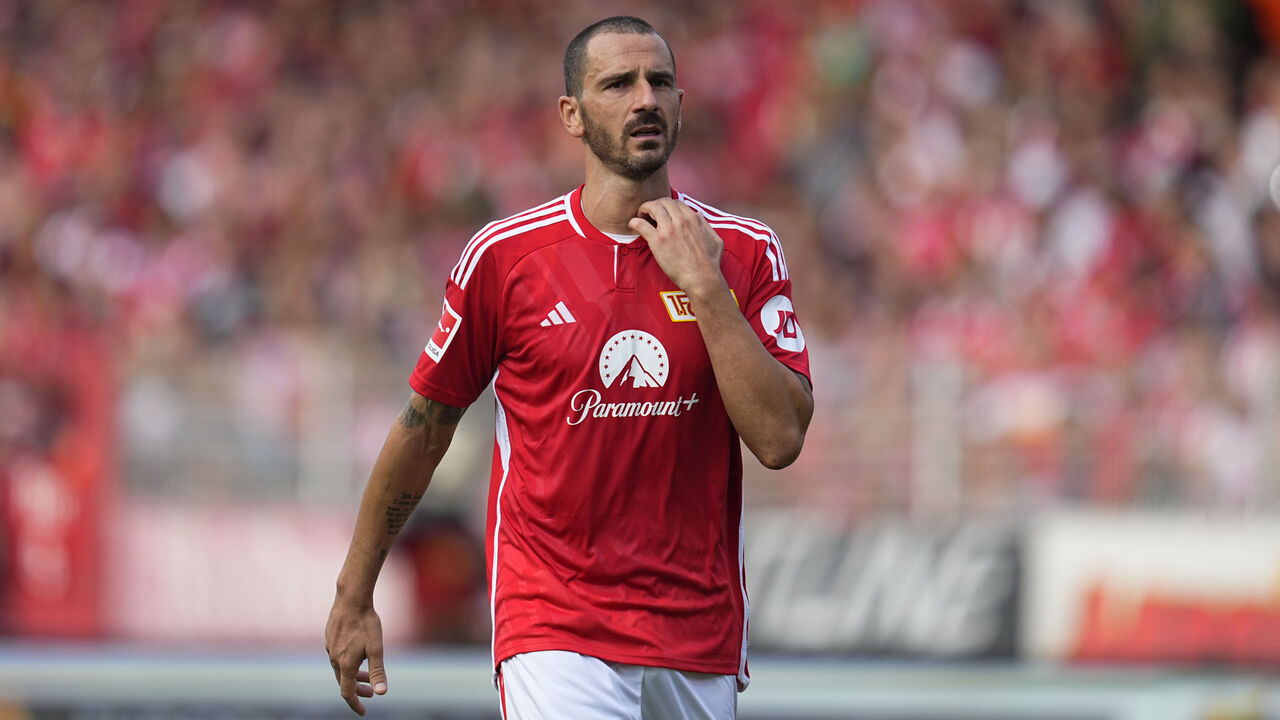
Man Utd scout Gyokeres: Manchester United are casting a wide net in their striker search, with Viktor Gyokeres among the names monitored. The Swede, 25, is having a breakout season with Sporting CP. (Correio da Manha)
Liverpool want Jedi: With Andy Robertson still sidelined long term after shoulder surgery and “not even close” to returning, according to Jurgen Klopp, Liverpool are eyeing Fulham left-back Antonee Robinson. (90min)
Savio staying put: One of the catalysts behind Girona’s fairytale title push, Savio is turning heads across Europe. Currently on loan from Troyes, he’ll remain within the City Football Group umbrella. (Diari de Girona)
Dec. 27
The battle for Inacio: Arsenal are leading Liverpool in the race for 22-year-old Sporting CP defender Goncalo Inacio, who has a €60-million release clause in his contract. (A Bola)
Inter target attacking trio: Looking for more depth behind star forwards Lautaro Martinez and Marcus Thuram, Inter are considering moves for Mehdi Taremi, Anthony Martial, and Armando Broja. (Gazzetta dello Sport)
Atleti block Juve’s approach: Juventus, perennially looking to improve their midfield, have reignited their interest in Rodrigo de Paul, but Atletico Madrid have made it clear the World Cup winner isn’t for sale. (Mundo Deportivo)
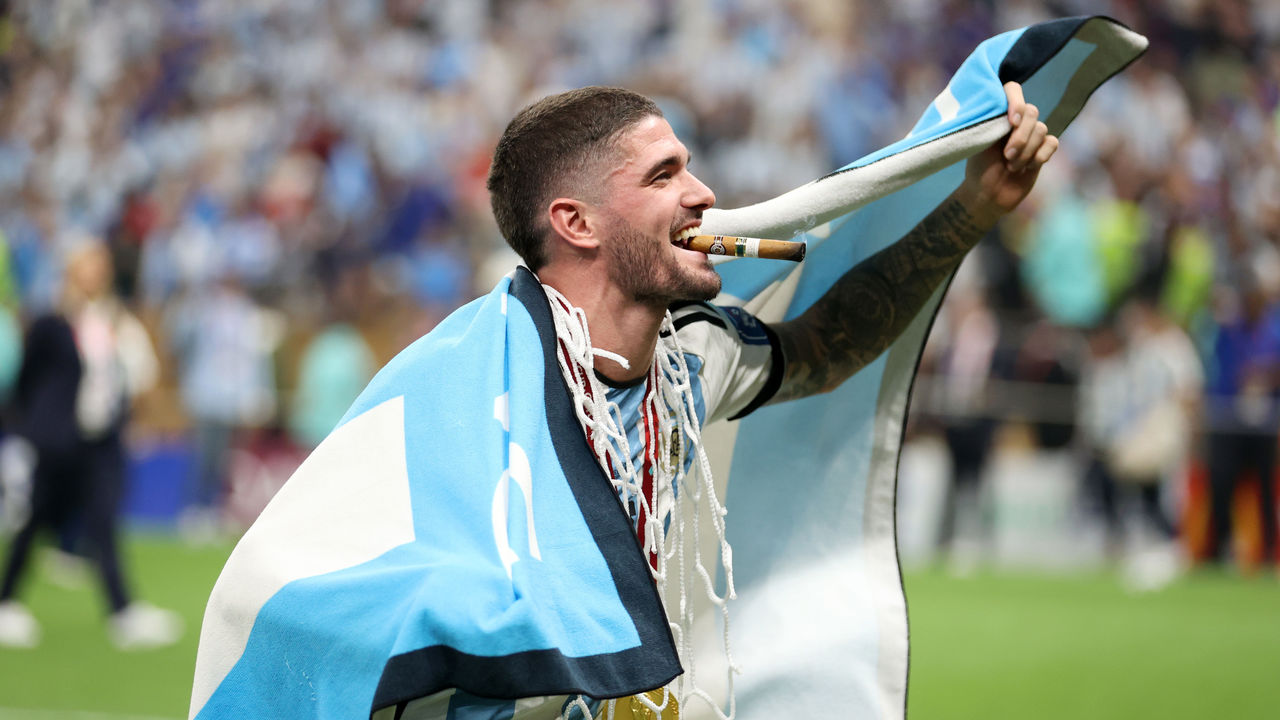
PSG busy in Brazil: After beating the competition to Lucas Beraldo of Sao Paulo, PSG also struck a €20-million deal with Corinthians for 18-year-old midfielder Gabriel Moscardo. (Fabrizio Romano)
Romantic return for Varane: Manchester United defender Raphael Varane, 30, is considering a move back to French club Lens, where he began his senior career over a decade ago. (L’Equipe)
Ligue 1
Key thoughts and analysis from Matchday 3 in the Champions League
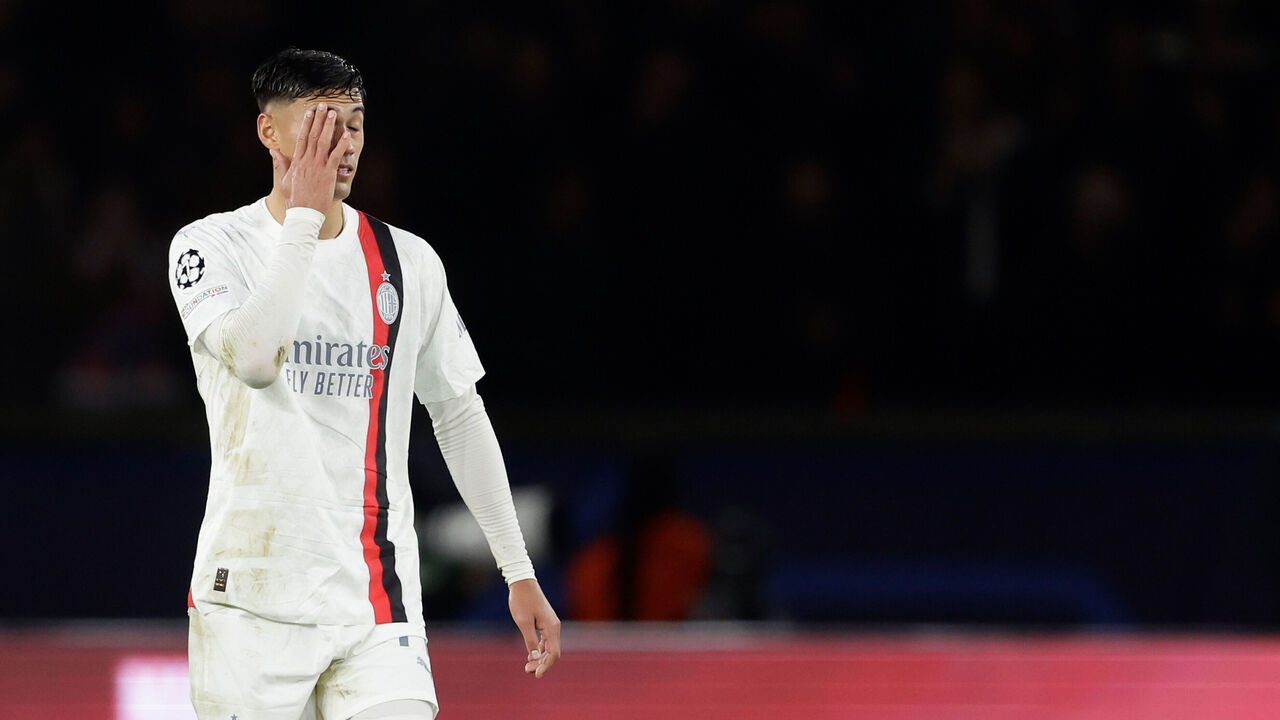
The Champions League rumbled on this week. Below, we dissect the biggest talking points from Matchday 3 in Europe’s premier club competition.
AC Milan going backward – and fast
AC Milan’s last few seasons were about taking steps forward. Their project began in earnest when they reached the Champions League for the first time in eight years. It continued with their first Serie A title in 11 years and hit another level last season when they made the Champions League semifinals for the first time since the 2006-07 campaign.
Now they sit dead last in their Champions League group with two points and zero goals scored after losing 3-0 to Paris Saint-Germain on Wednesday. While the Rossoneri remain in second place in Serie A, they have struggled against teams in the top half of the table, losing 5-1 to Inter Milan and 1-0 to Juventus, and have scored just once in their last four matches in all competitions. They had two players sent off in their last three matches and collected 10 yellow cards in that span. This is far from the exciting ensemble that made fans dream again. This is a cheap knock-off.
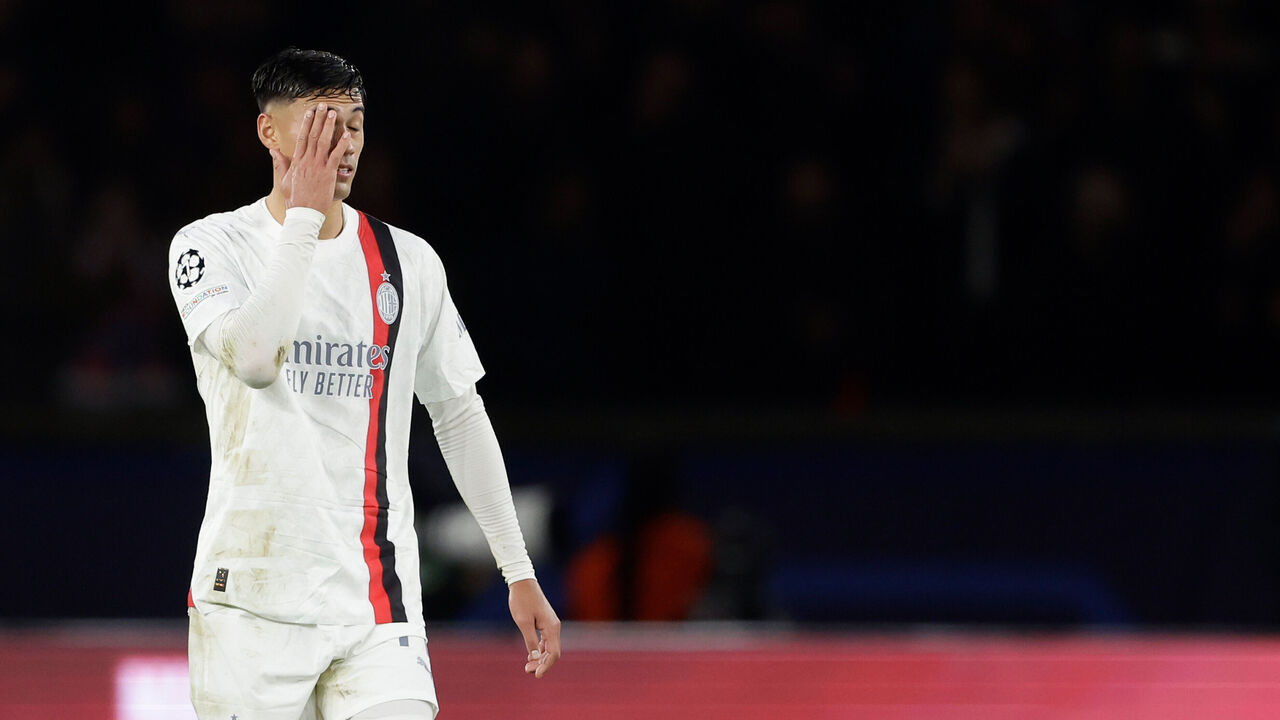
Part of that is down to injuries. Milan are missing Ruben Loftus-Cheek, Ismael Bennacer, Samuel Chukwueze, and Noah Okafor, robbing them of two midfield starters and a pair of high-impact substitutes. But that doesn’t excuse the lack of character and organization in Stefano Pioli’s side. It’s unbelievable that a team that once played with such precision and attacking fervor could become so porous in midfield, so weak on the ball, and so meek in front of goal. They’re no longer playing like a team, passing the ball with any particular rhythm, or winning duels or second balls. Milan’s attack has been reduced to a run-and-gun offense, with Rafael Leao and Christian Pulisic the only ones creating anything of note. But because they have struggled for consistency, so too have Milan.
Fans have watched this physical and tactical deterioration for months. The only reason Milan qualified for the Champions League was because of Juventus’ points deduction in 2022-23; they would’ve otherwise finished in fifth place. Pioli struggled all of last season to find the right balance with his players, and he somehow managed to keep his job despite the massive shake-up at board and management level.
It’s a great shame because things are finally looking up off the pitch. Three years removed from reporting nearly €200 million in losses, the club has turned a profit. But Milan look less and less like a contender on any front. – Anthony Lopopolo
Magpies brought back down to earth
No goals from their opening two group-stage games proved Borussia Dortmund aren’t the swashbuckling knockout-round regulars we’ve seen in previous Champions League campaigns. This is a team trying to compensate for Jude Bellingham’s departure and a poor goal return from its wealth of attacking options. To further complicate matters, Julian Brandt – Dortmund’s most dangerous player with four goals and five assists in all competitions this term – was a late scratch from Wednesday’s trip to Newcastle United due to a calf injury.
So, don’t be fooled by Newcastle’s shortage of European pedigree. Felix Nmecha’s excellent first-half finish securing a 1-0 away win for Dortmund is a huge shock that blows open this season’s most intriguing quartet.
Group F after three matches
| # | Team | GD | Points |
|---|---|---|---|
| 1 | PSG | +2 | 6 |
| 2 | Dortmund | -1 | 4 |
| 3 | Newcastle | +2 | 4 |
| 4 | AC Milan | -3 | 2 |
Newcastle crash-landed from their historic victory over Paris Saint-Germain. Callum Wilson could’ve twice leveled when his close-range shot was saved by Gregor Kobel and a late header hit the underside of the crossbar, and Anthony Gordon’s deflected effort deep into stoppage time also hit the woodwork. But it took too long for the Magpies to click and prove they were the better team.
And when the synergy isn’t there, Newcastle don’t have an individual who can provide a key moment – a touch, a trick, a goal from nowhere. The top teams in this competition have a player like that. Newcastle are perhaps too early in the Saudi-funded project to have one; they have a group of grafters, but a player who can carry a team on his own is harder to find.
Miguel Almiron is an example of Newcastle’s lack of stardust. He doesn’t have the outrageously high level of technical ability you’d expect from a mercurial attacking midfielder, but he has more tactical sense and a higher work rate than many players of his ilk. That unique combination probably makes him popular among his teammates and Newcastle’s traditionally blue-collared support, but, in a decisive moment, you probably don’t want him there. His touch can be too heavy and his final ball can be wayward. In the last action of the match, Almiron wastefully skied a shot over the bar when the box was packed with black-and-white shirts.
The elite in this competition get the job done.
It may seem premature to say, but the home defeat could be extremely costly for Newcastle. Two away matches at Dortmund and PSG await Eddie Howe’s men, potentially setting up a high-stakes meeting with Milan on Tyneside to conclude the group on Dec. 13. – Daniel Rouse
Savvy Bayern pass test
The look of relief after the full-time whistle said it all. There were hugs and handshakes all around in celebration of Bayern Munich’s escape from Turkey with three points after one of their toughest tests so far this season.
Galatasaray, who came into the contest on a high after beating Manchester United at Old Trafford last time out, looked like they could end Bayern’s 15-game winning streak in the Champions League group stage. That incredible run appeared to be in jeopardy when Mauro Icardi equalized with a first-half penalty that triggered a loud burst of joy from the raucous Gala fans. The home side, using an aggressive approach, caused problems for Bayern and should have taken a lead into halftime. They came out of the break with a similar desire to play on the front foot.
But that opened the door for Bayern. The savvy Bavarians eventually took advantage of the tiring Turkish side, with Harry Kane scoring what proved to be the winning goal.
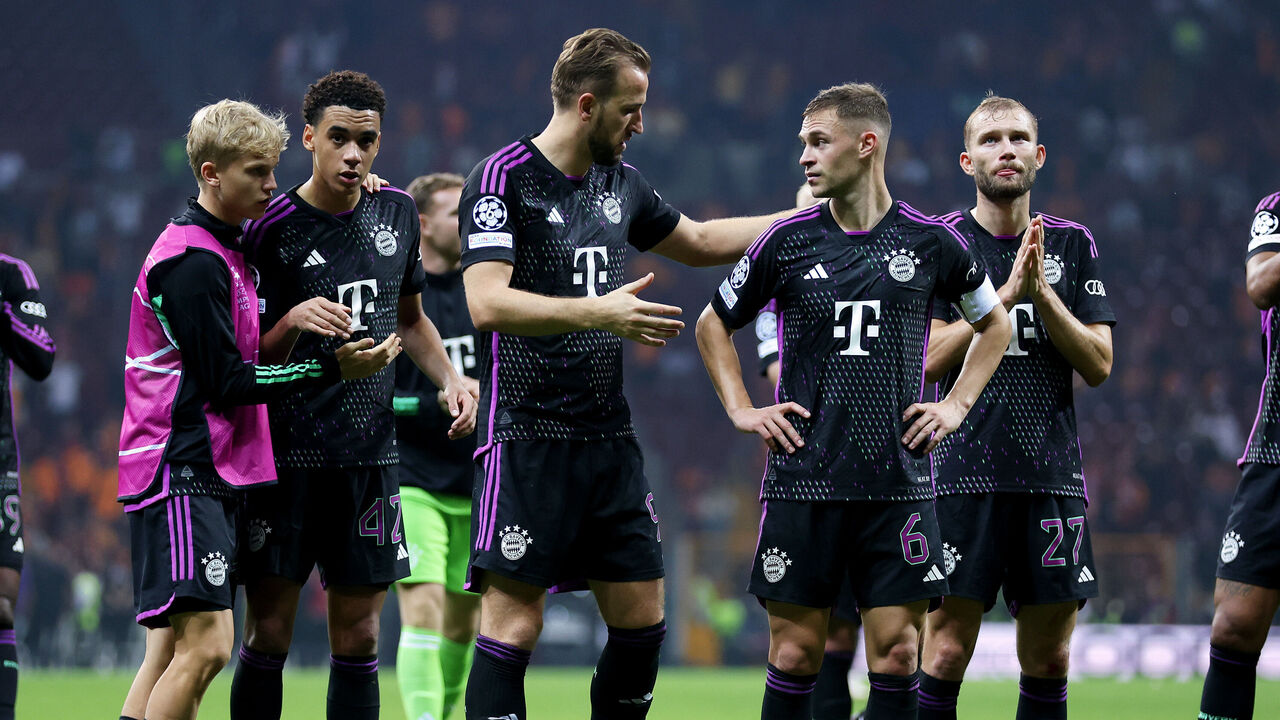
Kane stole the headlines with his 11th goal (and sixth assist) in all competitions since his summer arrival, but Leroy Sane did his part to help offset Bayern’s injury woes, continuing his bounce-back season with another great performance. After a difficult 2022-23 campaign – remembered more for his squabble with former teammate Sadio Mane than his exploits on the pitch – the spotlight is, thankfully, back on his talents. Sane didn’t add to his goal tally Tuesday, but he was a menace who proved almost impossible to contain.
Jamal Musiala also continued to shine, showcasing just how good the German club still is during an injury crisis that might’ve proved devastating to most other teams. Now, it’s just a matter of time before Bayern qualify for the knockout rounds once again.
If they’re this good without a host of first-team regulars, the best is yet to come for the unbeaten Group A leaders. – Gordon Brunt
Can Bellingham keep up ridiculous form?
Advanced statistics tell us Bellingham has scored more goals than any player should have this season. But they don’t tell the whole story. The reason Bellingham has 11 goals in his first 12 games for Real Madrid is much more nuanced than any expected-goal ratio.
Take the winner he bagged Tuesday against Braga: Bellingham joined the attack late, benefitted from the space that Braga’s back-pedaling defenders left behind, and waited patiently for Vinicius Junior to find him at the edge of the area. His finish was superb. His spatial awareness was even better.
Bellingham has made a habit of scoring off of these late runs into the penalty area. He does what Lionel Messi has done so well, drifting out of sight and mind before coming sharply into focus. He doesn’t have to burst a lung to get into scoring position. He times it perfectly.
The 20-year-old is also an exceptional finisher. He doesn’t have to bludgeon the ball with venom. Just as he understands the space around him, Bellingham knows exactly where to place the ball.
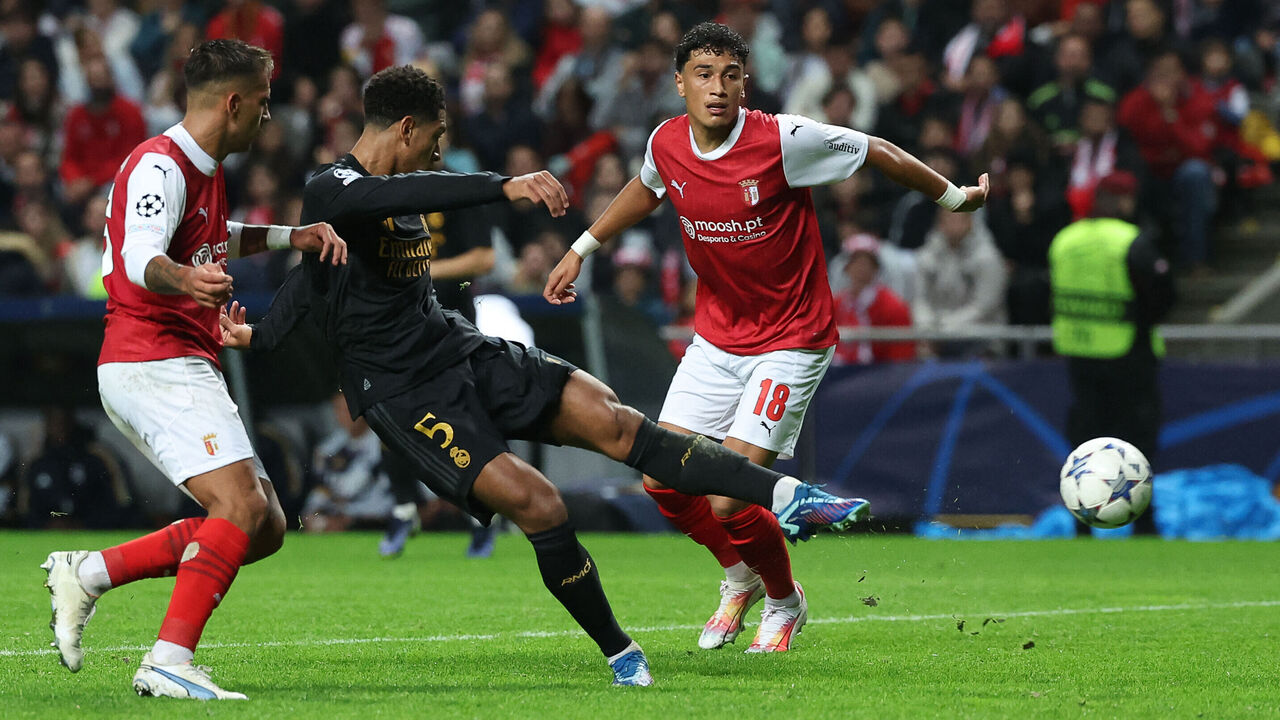
His finish Tuesday looked effortless precisely because it didn’t need that much juice. He picked out the bottom corner with the same finesse he used when he lofted the ball over Athletic Bilbao ‘keeper Unai Simon in August. And Bellingham was as patient as he was when he baited Osasuna’s goalkeeper before squeezing the ball through his legs earlier this month.
Madrid manager Carlo Ancelotti noticed these qualities in Bellingham early on and allowed him the freedom to roam. That’s a rarity in football these days. There are so few high-scoring midfielders in today’s game because most of them must follow certain tactical patterns. The shackles are off here.
But it would be equally foolish to say Bellingham is a throwback No. 10. He can win balls and track back and do all the things the playmakers of the 90s and 2000s hated doing. His four tackles and two interceptions in the 3-2 win over Napoli led his team, as did his two interceptions against Braga on Tuesday.
But the dirty work never comes at the cost of scoring. – Lopopolo
Quick free-kicks
Zaire-Emery mature beyond his years
Warren Zaire-Emery exudes poise on the pitch. The 17-year-old sparkled against AC Milan on Wednesday, logging two assists and looking like the most assured midfielder on the pitch despite his age. “He does everything well, defensively and in attack. He is aggressive, good technically, has good vision, can score and set up goals,” Luis Enrique said after the match in which the PSG academy product led his side with four key passes. Zaire-Emery has a feel for the game that can’t be taught, and that’s part of what makes his potential so frightening. He’s only going to get better as he matures physically, but he already boasts an uncanny ability to time passes correctly and find the right spaces to exploit in possession. After letting so many of their prodigious homegrown youngsters depart over the years in favor of high-priced names, let’s hope PSG actually hang on to this blossoming superstar and continue giving him opportunities to shine and grow. – Gianluca Nesci
Barcelona have a future after all
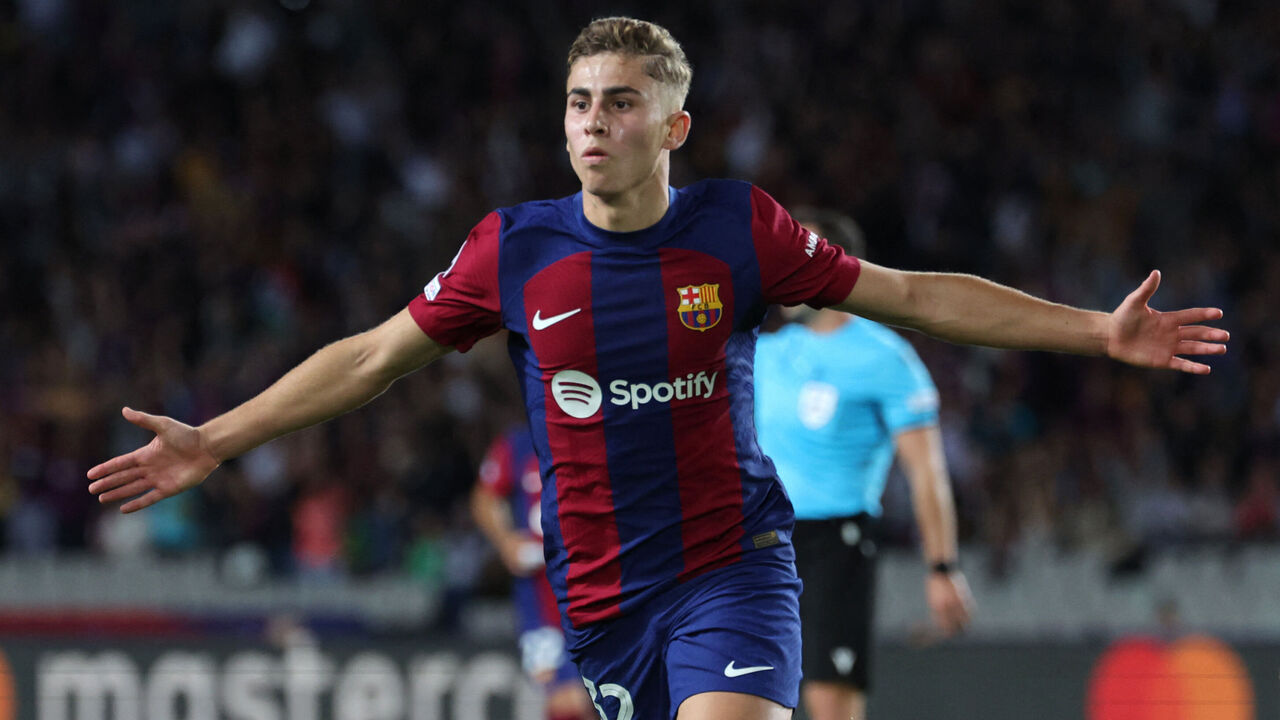
Despite mortgaging a good chunk of down-the-line revenue for cash-flow purposes, Barcelona still have quite the future ahead of them.
Every week, one of Barcelona’s La Masia graduates steals the spotlight. Earlier this month, it was Lamine Yamal, who became La Liga’s youngest scorer at 16 years old. Last weekend, it was Marc Guiu, who scored the winning goal mere seconds into his La Liga debut. And on Wednesday, it was 17-year-old Fermin Lopez, who struck the crossbar and winner in Barcelona’s 2-1 win over Shakhtar Donetsk. The 20-year-old made headlines during the club’s preseason tour of the U.S., scoring and assisting in a memorable victory over Real Madrid at a sold-out AT&T Stadium, and he once again showed his class against Shakhtar.
Credit must go to Xavi Hernandez, an academy graduate himself, for giving these youngsters a chance to shine and being one of the few people at the club to prioritize the future. – Lopopolo
Dream UCL debut for red-hot Gimenez
There’s hardly anyone in better form right now than Santiago Gimenez. The Mexican international has Group E leaders Feyenoord in an advantageous position to progress to the Champions League knockouts after a sparkling performance in Wednesday’s 3-1 win against Lazio.
Playing in his first-ever Champions League game after missing the Dutch team’s first two matches through suspension, the 22-year-old didn’t let the occasion get to him, punishing Lazio’s defense with two goals to add to his impressive haul this season. He nearly had a debut hat-trick, but his strike in the first half was overturned by VAR. Gimenez is the top scorer in Europe’s top seven leagues, and he now has 15 goals in 11 matches across all competitions. If he keeps this pace up, don’t be surprised if Feyenoord pull off an upset or two in the knockout rounds. – Brunt
Eriksen’s contribution key on night of redemption
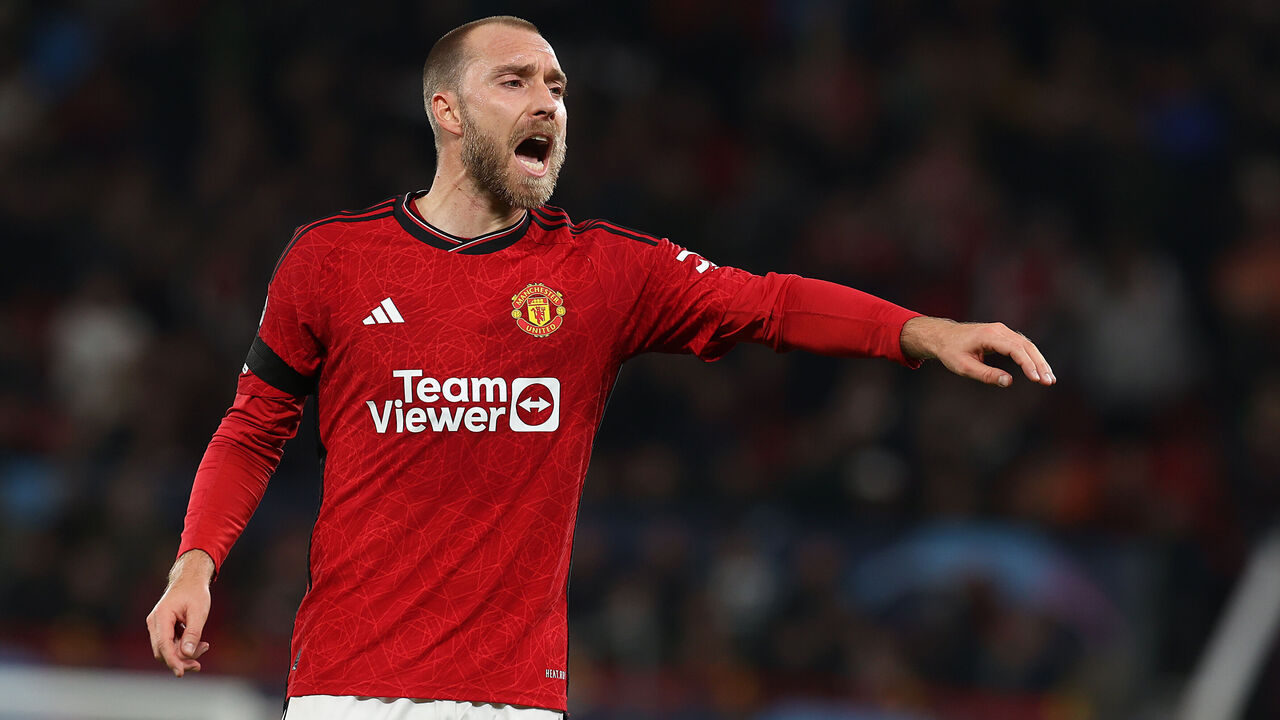
The referee blew for the interval at Old Trafford with around 15 seconds of the 45 minutes remaining. And for that, we should be grateful. Manchester United lacked courage, chemistry, and anything close to entertainment value in the opening period against FC Copenhagen. It was an ugly spectacle. Something – anything – had to change.
Christian Eriksen replaced the unimpressive Sofyan Amrabat and instantly brought more imagination and belief to Erik ten Hag’s ranks. Harry Maguire’s match-winning header, three days after his standout performance against Sheffield United, and Andre Onana’s penalty save in the final second neatly provided a redemption tale for both players, but that shouldn’t hide the fact that Eriksen was the true architect of a crucial 1-0 victory that belatedly ignites the Red Devils’ European campaign. – Rouse
Copenhagen can’t catch a break
Jordan Larsson never looked like scoring. The son of Henrik, the Swedish icon who had a brief loan spell at Manchester United, had the ball placed on the penalty spot, but the protests and encroaching from the home side delayed his attempt. He picked up the ball again and kissed it, and all the while appeared wary of looking up at Onana’s goal. Once he took the penalty in the 97th minute, it was too close to the middle of the goal and at a convenient height for Onana to paw away. Diogo Goncalves also hit the post for the visitors in the fifth minute.
Copenhagen have one point from three Group A matches, but they could easily have seven or nine. The Danes were leading 2-0 at Galatasaray in their opening match and were under little pressure until Elias Jelert was sent off for a second yellow card. The Turkish giants salvaged a draw after goals in the 86th and 88th minutes. In Copenhagen’s second outing, they sat deep and frustrated Bayern Munich while threatening their illustrious opponents on the counter. Mathys Tel struck in the 83rd minute to glean a 2-1 win for Bayern. And now, they’ll return from a trip to Manchester United with nothing to show from a battling, disciplined performance. – Rouse
Jesus brings the chaos for Arsenal
Gabriel Jesus’ last 17 starts in the Champions League:
? 14 goals
? 4 assistsRidiculously impressive. ?? pic.twitter.com/9IZE1T9z4H
— Squawka (@Squawka) October 24, 2023
“You don’t know what I’m going to do. I create chaos. I started at Palmeiras at 15, 16. Before that I only played in the streets. I bring the streets to the pitch. That’s my quality.” That’s how Gabriel Jesus responded last month when asked to describe his game. That ability to create mayhem and leave the opposition in disarray was on display Tuesday, as the Brazilian turned three Sevilla defenders inside out to craft an assist for Arsenal’s opening goal, then scored a gorgeous one of his own, seemingly out of nowhere, to lead the Gunners to a 2-1 win. His unpredictability is what makes him so special. Jesus can break games open at a moment’s notice. Unfortunately, that unpredictability also extends to his availability; Jesus, who’s struggled with injuries during his Arsenal tenure, saw his memorable outing marred by a hamstring issue in the final minutes of the match. Arsenal have depth up front, but none of their backup options can replicate Jesus’ impact. – Nesci
Raspadori’s time to shine
With star striker Victor Osimhen expected to be sidelined for up to one month with an injury sustained during the recent international break, Giacomo Raspadori has an opportunity to step up in a time of need for Napoli. The diminutive Italian has primarily come off the bench since joining the club last year, but in two games with Osimhen sidelined, Raspadori has a goal and an assist, scoring the lone tally of the match against Union Berlin on Tuesday after a strong performance versus Hellas Verona in the league this past weekend. His understanding and connection with Khvicha Kvaratskhelia, while not nearly on the same level as that of Osimhen, continues to grow. Few players, if any, can replace the Nigerian’s scoring output, but Raspadori is going to have a prolonged chance to prove he deserves more minutes even after his prolific teammate returns. – Nesci
Stat of the week
Two more goals for Erling Haaland in Manchester City’s win against Young Boys. Not bad for a striker who’s supposedly out of form.
Erling Haaland is 23 years old and has only played 31 #UCL games….
He’s already in the top 20 all-time Champions League goalscorers. ? pic.twitter.com/iJbquL7Hdq
— Squawka (@Squawka) October 25, 2023
Tweet of the week
Who would’ve thought Maguire and Onana would be lapping up the applause after Manchester United clinched their first group-stage win of the season?
Maguire and Onana pic.twitter.com/sdUz632ZrE
— Tom Williams (@tomwfootball) October 24, 2023

Breaking down thrilling EPL title race with 10 games left

Euro 2024 playoffs: Miraculous Ukraine comeback, big result for Wales

Managerial merry-go-round: Predicting hires for marquee jobs

The Champions League's best XI so far

35 stars who will define the summer transfer window

Ajax show Juventus that winning requires more than individual quality
Trending
-
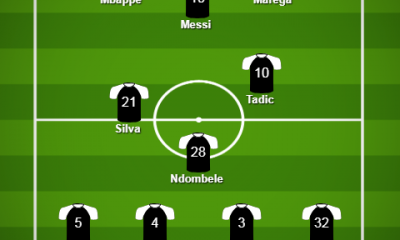
 Champions League5 years ago
Champions League5 years agoThe Champions League's best XI so far
-
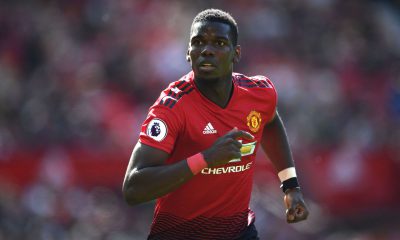
 Serie A5 years ago
Serie A5 years ago35 stars who will define the summer transfer window
-

 Serie A5 years ago
Serie A5 years agoAjax show Juventus that winning requires more than individual quality
-
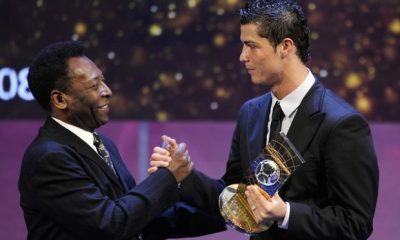
 Uncategorized3 years ago
Uncategorized3 years agoIFFHS publishes the list of top scorers in football history – Romario first, Ronaldo third
-
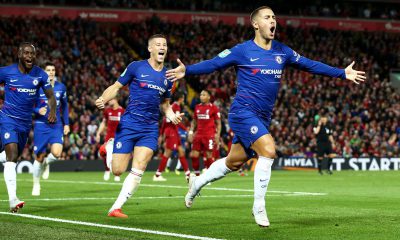
 Premier League5 years ago
Premier League5 years agoTransfer grades: Assessing Hazard’s move to Real Madrid
-

 Sports5 years ago
Sports5 years agoReady Newest Trainer in Bundesliga History, retire SOLSKYER.
-
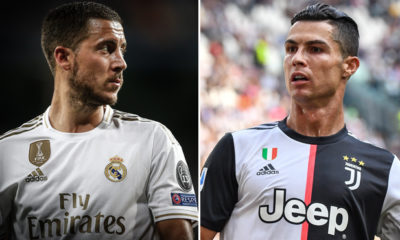
 Sports5 years ago
Sports5 years agoWenger: Hazard can’t replace Ronaldo.
-

 Sports5 years ago
Sports5 years agoMastur Talent Returns: In Milan I was a chance to make money, penalized me for growing up as a footballer.

